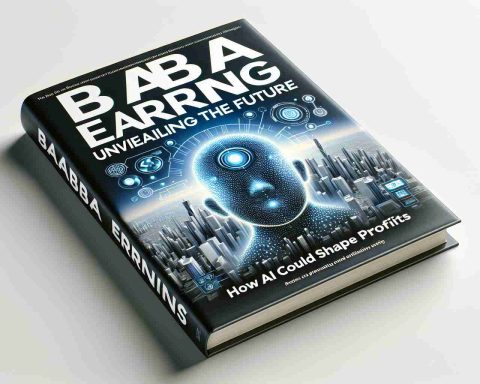- Asian markets are experiencing volatility amid rising uncertainty and data releases.
- Japan reported a record current account surplus, highlighting strong overseas investment returns.
- The U.S. dollar strengthened against the yen, while the euro faced a slight decline.
- Optimism for Chinese stimulus led to gains in the Hang Seng index, despite concerns over U.S. tariffs on Chinese imports.
- Experts predict the tariffs may affect Asian economies significantly, creating further market instability.
- Investors are focusing on upcoming corporate earnings reports, particularly from Honda and Nissan.
- Staying informed is crucial as the markets prepare for continued turbulence.
As Asian markets opened this week, a wave of uncertainty washed over investors, creating a chaotic trading atmosphere. The Nikkei 225 in Japan dipped slightly by 0.1% to 38,746.96, even as fresh data revealed an unprecedented current account surplus of 29 trillion yen ($191 billion) for the last year. This impressive figure signals the strength of Japan’s overseas investment returns, especially in a climate fueled by a weakened yen and rebounding exports.
Meanwhile, currency traders watched the U.S. dollar climb to 152.11 yen, while the euro slipped to $1.0304. On a brighter note, the Hang Seng index surged 1.5% to 21,442.19, buoyed by optimism for Chinese stimulus as tech stocks rallied in response to forthcoming growth measures. Yet, looming tariffs from U.S. President Trump on Chinese imports cast a shadow over these gains, alongside retaliatory strikes from China.
Market experts foresee a volatile period ahead, with Stephen Innes highlighting the potential ripple effects of these tariffs across Asian economies. South Korea’s Kospi inched up 0.1% to 2,524.85, while Australia’s S&P/ASX 200 retreated by 0.4% to 8,479.30.
As U.S. consumers anticipate soaring inflation, the situation remains precarious. Investors are now leaning on upcoming corporate earnings reports, notably from Honda and Nissan, amidst speculation of potential disruption in their merger talks.
The takeaway? Whether it’s through tariffs or trades, the markets are bracing for a bumpy ride, and staying informed is key to navigating these turbulent times.
Investors Brace for Turbulent Times: Key Insights into the Asian Market Dynamics
As the Asian markets opened this week, uncertainty gripped investors, leading to a volatile trading atmosphere. The Nikkei 225 in Japan experienced a slight dip of 0.1% to 38,746.96, despite newly released data showcasing a remarkable current account surplus of 29 trillion yen ($191 billion) for the last year. This statistic highlights the robustness of Japan’s overseas investment returns, particularly amid a weakened yen and recovering exports.
Current Market Trends
In a notable shift, currency traders observed the U.S. dollar soaring to 152.11 yen, while the euro slipped, trading at $1.0304. The Hang Seng index exhibited a 1.5% rise to 21,442.19, driven by growing optimism surrounding Chinese government stimulus efforts, which have returned tech stocks to a position of strength. However, impending tariffs from U.S. President Trump on Chinese imports remain a concerning factor, with potential retaliatory actions from China further complicating the landscape.
In South Korea, the Kospi index saw a modest increase of 0.1% to 2,524.85, while Australia’s S&P/ASX 200 index declined by 0.4% to 8,479.30. Analysts, including Stephen Innes, emphasize the possible ripple effects of U.S. tariffs on Asian economies, indicating that volatility could remain a defining characteristic of the market in the upcoming months.
New Insights into Market Dynamics
1. Market Forecasts: Long-term forecasts suggest rapid changes in trade relations and foreign investments could reshape Asian markets. As tensions rise, businesses will be pressed to adapt quickly to tariff implications and consumer behavior shifts.
2. Innovations in Trade: Asian markets are witnessing increasing innovations in e-commerce and fintech that may help mitigate some challenges posed by tariffs. Companies focusing on enhancing digital transactions and enhancing supply chain efficiencies are likely to emerge as frontrunners in boosting market stability.
3. Sustainability Trends: Investors are also beginning to take note of sustainability practices within corporations. Firms investing in green technologies or sustainable practices may enjoy a favorable market response, providing a buffer against anticipated economic shocks.
Key Questions and Answers
1. What could be the impact of U.S. tariffs on Asian economies?
– The U.S. tariffs on Chinese imports could lead to increased costs for goods and disrupt supply chains. This may force companies to reconsider their sourcing strategies, potentially benefiting alternative markets in Southeast Asia.
2. How are corporate earnings influencing investor confidence?
– Upcoming corporate earnings reports, especially from dominant players like Honda and Nissan, are critical. Investors are keen to gauge these companies’ resilience and adaptability amid changing economic conditions and potential merger disruptions.
3. What are potential mitigation strategies for investors during this volatile period?
– Investors may consider diversifying their portfolios to include technology and sustainable companies. Additionally, staying updated on international trade policies and flexible investment strategies could aid in navigating economic uncertainty.
For further insights, visit the main domains:
– Financial Times
– Asia Markets
– Reuters
In conclusion, the markets are preparing for a tumultuous phase where understanding the intricacies of international trade relations and corporate dynamics will be essential for successful navigation.
























